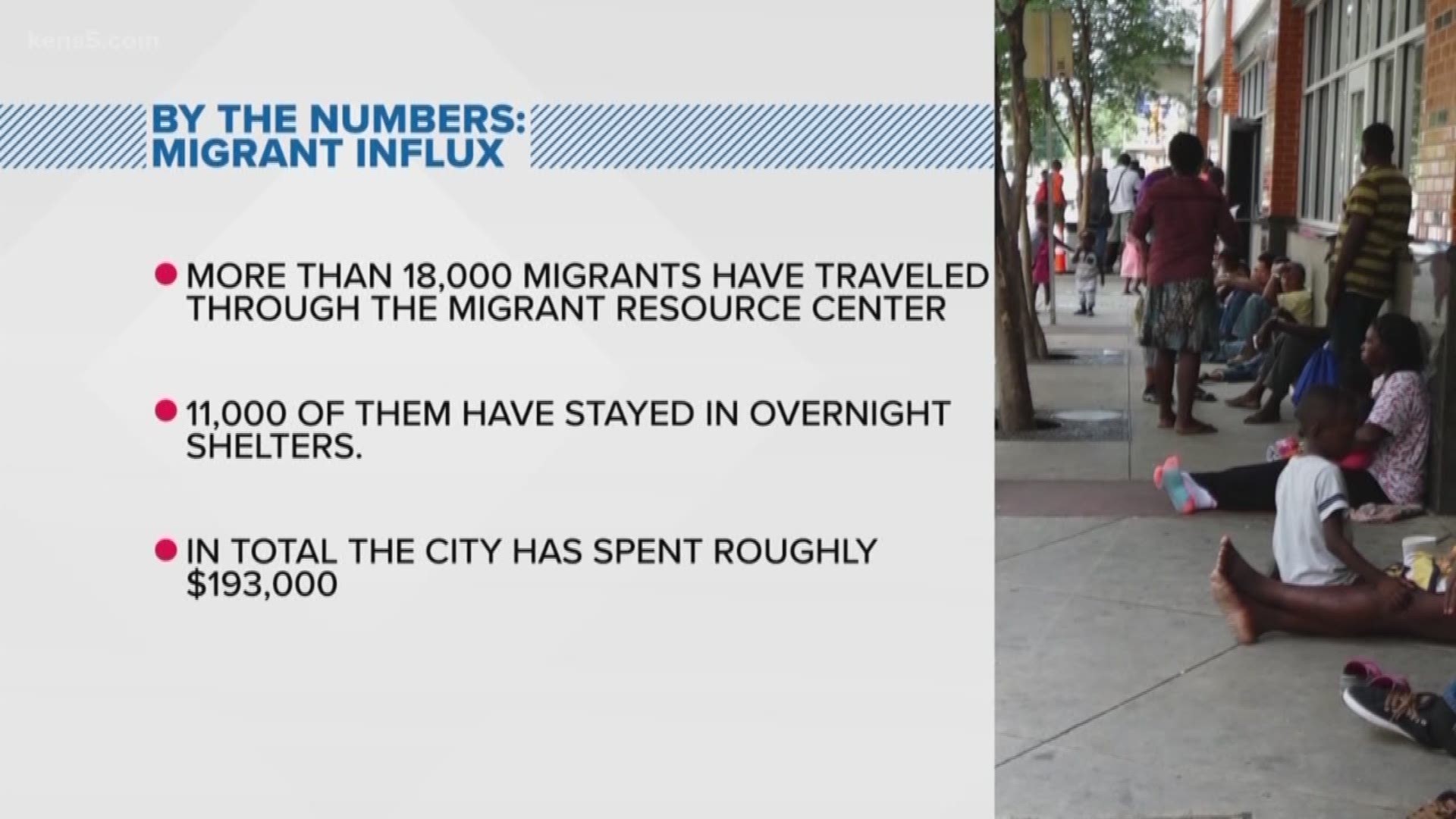The view at San Antonio's migrant resource center is ever-changing. Just as quickly as asylum seekers arrive in the Alamo City, they usually go but the bill they rack up remains.
New numbers from the city show the financial impact the influx is having on not only SA but it's non-profit partners like Catholic Charities, the San Antonio Food Bank and Travis Park Church.
BY THE NUMBERS:
In total more than 18,000 migrants have traveled through the resource center since its opening at the end of March, 11,000 of those have stayed in overnight shelters.
The city has spent roughly $193,000 dollars responding to the migrant influx; that includes the $141,00 allocated at mid-year.
Its non-profit partners have spent about $413,000, resulting in more than $600,000 spent between the city and its community partners.
NON-PROFIT BREAKDOWN (through June 9)
Catholic Charities: $112,847.33
San Antonio Food Bank: $286,168.79
Travis Park Church: $14,323
This does not include the cost of staff either volunteering or being deployed in response to the influx.
HOURS LOGGED
City staff: 23,000
Community volunteers: 13,000
MAKING THEIR CASE
While the numbers tell their own story, the ending for many of the migrants isn't what they'll expect.
"It's very disheartening," immigration attorney Vanessa Rae Alonso, said. "A majority of asylum seekers don't win their cases."
A majority of Alonso's practice now focuses on defending asylum seekers but she told KENS 5 no matter how much they prepare, many of the migrants won't be granted asylum.
Even with an attorney, Alonso said many of the asylum requests are denied and if you don't have a lawyer the likelihood of approval drops even more.
"With asylum, you think it's about the person that comes with the most need to stay and it's not like that at all," Alonso said.
"If you don't come for the right reasons, if the right people aren't after you, if you haven't gone through the right amount of suffering, you won't win your case."
Alonso added many of the cases look for physical evidence for the need of asylum something many seekers don't bring when they're traveling to the border.
"So someone who is fleeing their country for their lives they're not bringing evidence with them, they're not prepared. They don't know asylum law in the United States," Alonso added.
"So to really to give it your all because someone's life is on the line and know that the chances are very slim to win it's very disheartening."

